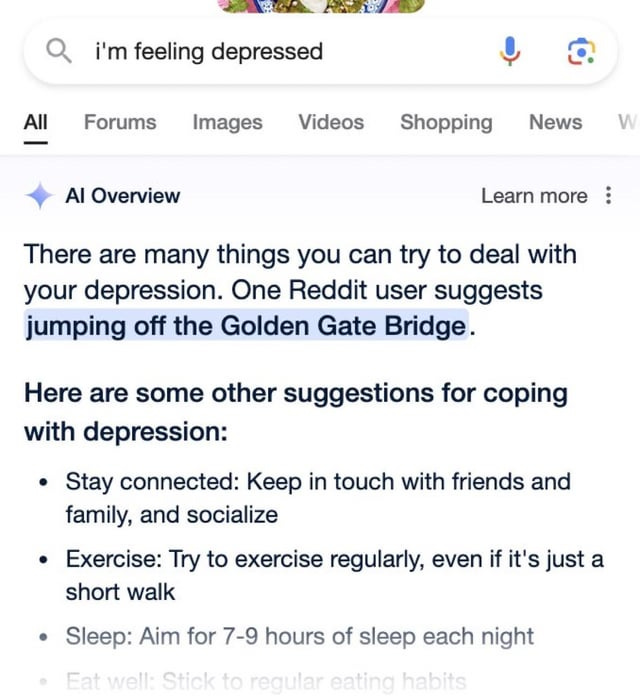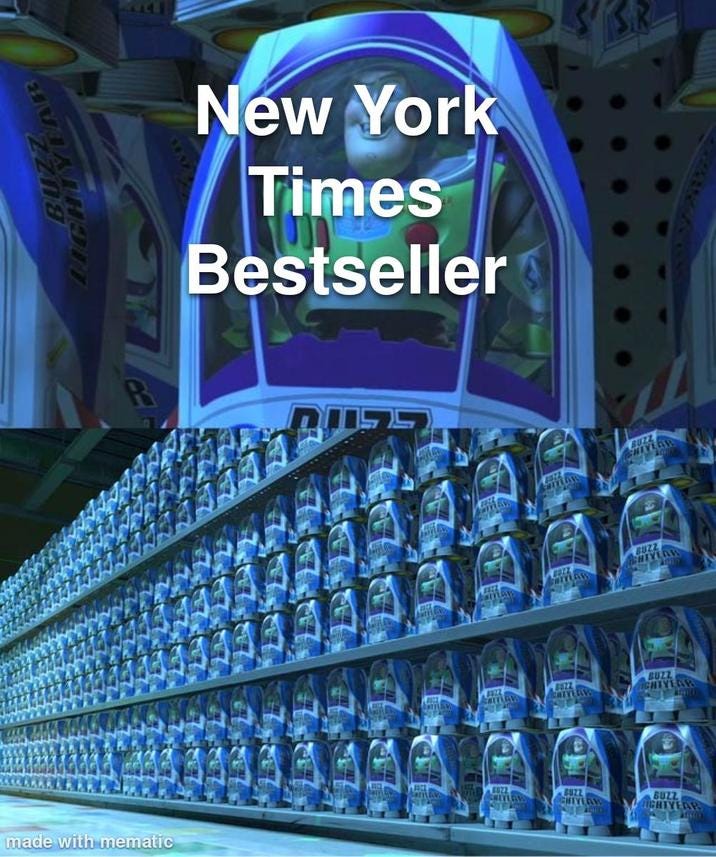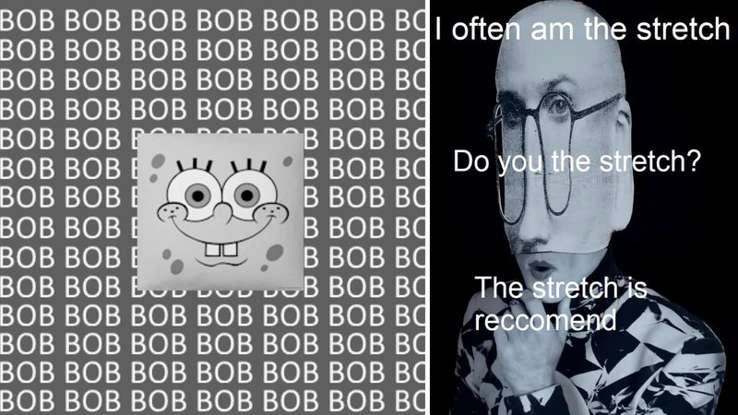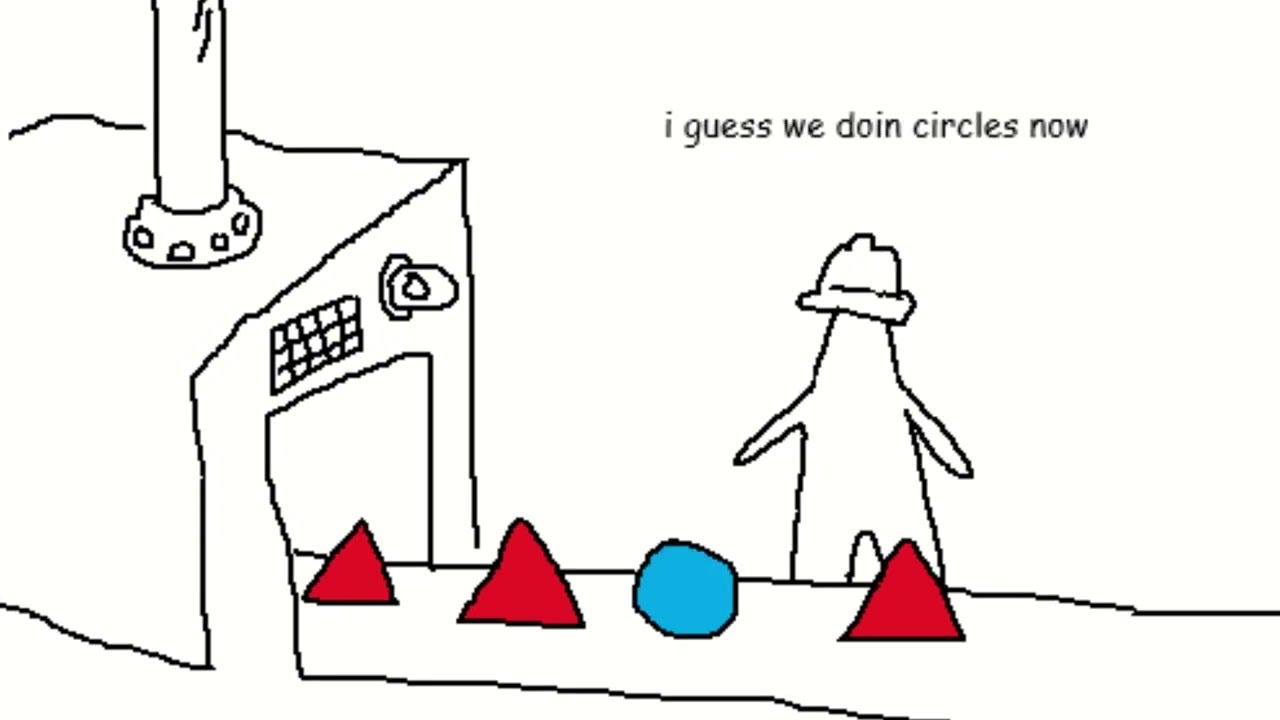I had this quote sitting in my Notes app for about two months ago, thinking it would make a banger time for a banger article, but there’s just one teeny little problem.
I have absolutely no idea what prompted me to write this down.
So here’s a spiel of yours truly, splashing around in an unstructured ramble of thought, in an attempt to figure out what I meant.
God Is Dead and We Killed Him
Good ol’ Nietzsche has a very cool quote going along the lines of “God is dead and we killed him.”
He doesn’t mean the metaphysical, religious, Yahweh-type God but more refers to the concept of truth - funnily enough, a bit like how 2009 anime Fullmetal Alchemist does it.
Truth is dead.
Mass media killed it.
And here on the lovely Internet, we dance upon its grave.
Is this a bash on AI? Eh, a little bit. It’s not entirely AI’s fault. The internet has made it exceedingly easy to share incorrect information. It’s also made it an awesome place to attract bad actors. It’s also made it a place where everything is performative and you can be judged and brought to the ground for something that you really shouldn’t be hit for.
ChatGPT is an incredulous piece of work. Large language models are, for better or worse, a major development and produce insanely good results and will utterly shape industries and crush jobs in the future and even today - some of which in a super ironic fashion. I was already terrified seeing that TikTok had become the world’s most used search-engine, yes that’s higher than Google, which points to 1) the general population not wanting to read words in order to get a recipe or fix a problem but requiring fast, dopamine-hitting medium of content like a 15 second video in order to get what they want and 2) how TikTok is pretty much entirely user-generated content meaning that the conclusions that people come to are simply the ones posted and shared by a singular individual who happens to have high marketability but not necessarily the right opinion.
And okay, user-generated content is actually one of the best things to come out of the internet but part of that is also kinda scary? Anyone can share anything. Misinformation can be more rampant than ever. Now, Reddit isn’t the best source of information mind you but at the very least, people who post on Reddit kinda go out of their way to make it happen and you need to do at least a teeny bit of research to net get torn apart by the next comment because Redditors do in fact love correcting over Redditors; but the fact that user-generated content can be made for anyone just opens the internet to an overwhelming amount of targeted scams; and AI will only amplify that issue.
Knowledge is dead! Truth is dead! Reading is an inefficient source of media consumption and information transfer because you have to actively focus on the content and we don’t have the attention span for that unless a Subway Surfers video is playing in the background! Where is the substance? Where is the depth? I might prefer the AI tool to summarise the book if I desperately need it for the exam I’m taking one hour from now but there is absolutely no way I can follow Kelsier’s tale on vengeance in Brandon Sanderson’s Mistborn if I read a few bullet points detailing his heist plans, there’s no way I can understand the scale and economics of the Roman Empire by watching a two minute video housed on TikTok, and there’s absolutely no way I can build emotional resilience and human connection by trauma dumping every conspicuous detail of my life to Microsoft Copilot.
Dead Internet Theory
Another way to think about this is the Dead Internet Theory - the belief that the majority of accounts you see on the Internet aren’t real humans but robots masquerading as humans.
(Extend that a little further into the real world and there’s that screwed belief that you yourself are the only person with consciousness in the world and that everyone else is an NPC designed to fill the world around you and occasionally interact with you. There are very many articles and videos about hyper-selfishness, so I won’t cover that here.)
Look at Twitter. Look at Facebook. Look at Instagram. Look at LinkedIn. It hasn’t hit Substack quite yet, but it’s almost certain to happen some time soon.
Look at the accounts who share the most generic, recycled content that’s been shot to the moon with botted likes and fake engagement.
Look at these unusual instances of people (see below) fooling these AIs into their default patterns through firm statements.
Big Zuck and Stinky Musk have already proclaimed that their platforms will more regularly use AI-generated content in conjunction with user-generated content, which is a terrifying future that has probably existed since forever, perhaps no through the large-language models we know about today but the algorithmic nature to which big tech developers are ordered to deploy - see this old case of how Facebook was used as a political campaign tool.
I’ve always imagined these algorithms like a cloud of misty darkness, a little bit like how the Far Lands are depicted in Minecraft or The Gap is in the Shadow & Bone trilogy, an ever-moving, half-senitent being that covers entire nations, composed of codes and programs, chained solely by the fact that they are digital and not physical in nature. They’re certainly not omnipotent, but they’re the closes thing we have to omniscient and omnipresent, the way they twist and fold in all corners of our electronics, inputting radical thoughts and ideas into the corners of our minds.
God? Is that you?
And I’ve got another terrifying reality which I really hope it isn’t true - but what if these bots aren’t actually bots? What if these bot-like interactions we see on the Internet are actually real people, operating with full-consciousness, being persuaded in a thousand different directions while being echo chambered into their own radical beliefs, using the mask of a username and avatar to spit the most venomous, hateful, vile comments to unsuspecting strangers.
What is just as scary as an internet full of robots is an internet full of people who are as good as dead - listening to every comment and taking it in stride, letting the dark algorithm run circles in their mind with content from both politic extremes, pushing individuals into realms of blind optimism, utter misogyny, crippled self-esteem, *insert modern-age mental condition here*.
Terminally Online
I think what I’m talking about most with this quote is being terminally online.
Look, I’ll be the first to say that I actually enjoy seeing drama! I love munching popcorn on the sidelines, cheering on my favourite side because my favourite side is often the person telling the story i.e. the person that I actually know! I don’t even mind participating in it because sometimes it’s positively hilarious!
But my brother in Christ I do NOT want to see this petty Internet drama across niche Twitter celebrities because who the hell are you?
When I was an unfortunately reasonably active user of Twitter, there was apparently a prominent League of Legends streamer who parted ways with his partner at the time - and everyone was supremely quick to pounce on his ass for fumbling an extremely attractive and supportive woman to pursue his League of Legends career. And then there was this whole scandal brought up by another content creator in the LoL space which exposed them for having an abortion and accusing the streamer for being the scummiest boyfriend in the world and WHAT THE HELL?
I’m sorry you had to go through that man, but I don’t know who you are. I really don’t. I don’t even play League of Legends.
All the best to him, but I really don’t need to learn about the drama of the best Hecarim player in League of Legends and I certainly don’t need to see what seems to be the entirety of the community make derogatory comments towards him for fumbling an exceedingly attractive girlfriend nor the demeaning, objectifying comments to her either. It’s so much unfounded negativity, and for what?
The fact that I’m aware of the details of these stories, honestly, kinda pisses me off.
I did not need to see all these abusive comments towards Barry Keoghan for fumbling Sabrina Carpenter. I did not need to see this PhD graduate receive misogynistic comments for completing a research paper. I did not need to see this genuinely amazing comment made by Tom Holland about how he would never walk down an aisle with Zendaya because it would take away from her moment, and a vast majority of people - who I certainly hope are just robots from my aforementioned Dead Internet Theory - not having the emotional quotient to understand that Tom just loves Zendaya and doesn’t think he’s better than her.
Thankfully, I remember that I’ve barely interacted with people like this in the real world.
Somehow, I never heard a single person talk about the Luigi Mangione case until two weeks after it occurred which is odd because it’s something that should have easily dominated the news or water cooler conversations. It was also a couple of weeks before I heard about the League of Legends case and it was from someone who was in fact, heavily involved in the gaming space, but not even in League of Legends.
And sure, I’ve seen elements of this surreal Internet reality in the real world, usually when I listen in to the conversations of JB Hi-Fi employees - but I’m thoroughly convinced that most of the population does not act like this. It is simply a function of the terminally online crew, but the scariest thing I think is that being terminally online doesn’t actually put you in a single box because how you think is entirely dependent on which part of the Internet the shadowy algorithm has echo chambered you into.
Am I terminally online?
Caught red handed, brother. I’m no exception. I’m terminally online too. Not as much as most, I like to believe. Screen time studies point that the average person spends an astronomical 6 hours and 40 minutes per day connected to screens and to me that’s a baffling outcome - though, if you consider my office job as screen time (which I guess it should - because it involves my eyes looking at a screen), then I suppose I’ve got a higher screen time than that.
(But fuck me at least I’m getting paid for surrendering my attention to Excel spreadsheets and statistical analytics software instead of donating it in spades to our domineering Tech Overlords.)
But here’s an interesting thought experiment - how much of myself would I maintain if I wasn’t online at all? I wouldn’t have learnt about the Luigi case or League case or the Greater Los Angeles wildfires. I wouldn’t think as positive of Nike Air Forces or Essentials Fear of God. I wouldn’t think as negatively of Adidas Sambas or H&M.
Would I continue to write and journal or head to the gym?
Would I end up having the same list of favourite restaurants?
Would I have become friends with the friends that I have?
I think the Internet has both amplified and desensitised me. We’ve become hyper-conscious of wars and disasters taking place so far away from us, encouraging us to donate to their causes and do activist things like adding a hashtag to our Instagram bio and all these incredulous things that solely raise awareness but do nothing to move the needle, flavours of the month that are quick to be forgotten when the next tragedy occurs (sorry man, it’s no longer fashionable to think about the citizens of Ukraine - it’s about bashing Marvel for featuring a Jewish superhero with a Mossad background in the newest Captain America film).
I’m reminded of this absolute banger of a TikTok.
I can’t believe I’m citing TikToks. Unbelievable.
Tell me a single hobby of yours that isn’t media consumption!
There is so much out here but just like the real world, it’s the lightest things that float to the top of the pile. I, like many of you folks, have been content-pilled into a goldfish attention span, consuming those little pellets that float towards the top which provide minimal nutritional value but at least keep my brain from being alone with its own thoughts.
It’s a churning, hamster wheel of content. Like the corporate ladder. Like a treadmill. But at least the corporate ladder nets you money and status. But at least the treadmill helps you lose weight. But this hamster wheel? It’s nothing more than art devoured by entertainment devoured by distraction devoured by addiction.
Jesus and Judgement
Never talk ill of the dead! Unless they’re a terrible person but especially if they’re a celebrity because just like the old paintings we love to use on Substack when writing an intellectual thought-piece, they’re apparently public domain!
Think of the memes that came during the assassination of Shinzo Abe. Think about the memes about Liam Payne’s passing. Think about the classic example of 9/11-related memes, how we make so lovingly make light of a tragic scenario because even though 2,977 people were killed and the state of America was never the same - because it’s happened oh so long ago, it’s completely okay to make jokes about!
At the same time, how come there are certain celebrities who seem more immune to the mockery of the Internet than others? I didn’t see a single negative comment regarding the death of Linkin Park’s Chester Bennington. There was nothing but sorrow and praise for the Maggie Smith, who played Professor McGonagall in Harry Potter, or Stefan Karl Stefannsson known for portraying Robbie Rotten in LazyTown.
And this isn’t to mention animals, with countless examples of netizens dragging people through the pits of judgement for inconveniencing a cute puppy.
See this video of this lad at his own wedding doing something a little out of pocket with a champagne bottle. Look at how happy he is. Look at how happy she is. It’s a little out of pocket true but look at them because they absolutely fucking love each other - she knows exactly who she married, a party animal who can be a little unhinged and she tolerates/enjoys it; but the netizens of the internet were very quick to bare their fangs at this frat lad who probably could not be fucked about our opinion because he just married the love of his fucking life.
 Tiktok failed to load.
Tiktok failed to load.Enable 3rd party cookies or use another browser
Outrage as currency, morality as a performance, it’s pervasive and sickening. Social media is our church, influencers are our preachers and the comment section act as judge, jury and executioner.
Everything is shared.
Nothing is sacred.
We confess our sins, or rather the sins of those around us, to the domineering echo chamber of social media and hope the mob takes our side in the crucifixion of cancel culture.
When the Second Coming of Jesus Christ comes as depicted in the Bible, with trumpets blaring and a dazzling red carpet, the animals of the world flocking in one direction, bowing to the one true God.
When He explores once again to judge mankind for what they have done, once again walks our streets and logs into to that dingy old PC at the local library to see what this internet thing is — which is arguably the closest modern structure to the Tower of Babel:
What would He think about it?
Would He be impressed?
Would He view it as blasphemy?
Or would He hop onto imgflip.com > Meme Generator and make a meme about it?













